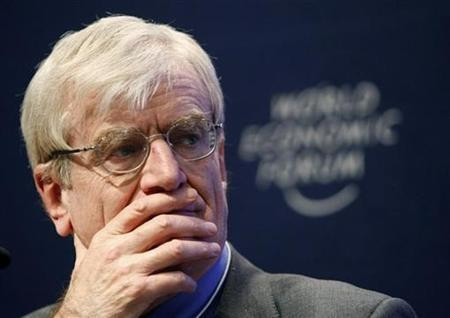CBI calls for public sector pay freeze

The Confederation of British Industry has called for an immediate freeze in the public sector pay bill for the next two year and has said that public services need to be "re-engineered" in order to get the deficit down.
In addition the CBI said that measures were needed to help businesses to create jobs and promote economic growth.
The CBI said that growth in the economy needed to be fuelled by private sector investment and trade rather than by government spending and "unsustainable growth in the financial sector".
In a report entitled "Time for action: Reforming public services and balancing the budget", the CBI said that pay and recruitment freezes in the public sector could save £18 billion without harming frontline services.
Money could also be saved if the new coalition government allowed private and third sector parties to deliver public services more efficiently. The CBI gave the example of re-engineering health and so social care to treat patients at home as a way of saving eight billion pounds by 2015-16.
In order to promote growth in the private sector the CBI said the government should establish more competitive business taxes, develop a strong banking system, strengthen apprenticeships and student skills, cultivate an enterprising culture, prioritise energy security, work towards a low-carbon economy and develop the infrastructure for economic growth.
Richard Lambert, CBI Director-General, said, "We have a new Government with a determination to get a grip on the public finances and the political will to do it. We need to see a detailed plan for achieving this in the Budget. Experience suggests that the best way of bringing down a substantial deficit without damaging growth is through spending restraint rather than raising taxes.
"With a public-sector squeeze looming, the new Government must also do everything it can to create the right conditions for the private sector to sustain and create new jobs.
"That means providing certainty around taxation and energy policy, sustaining capital investment, and strengthening our skills base. Above all, we need to send a strong message to the world that the UK is open for business."
The CBI stressed that it was not calling for a freeze on the lowest paid but was saying that the overall public sector wage bill should not increase. In addition the CBI pointed out that pay in the public sector rose 2.8 per cent in 2009, while private sector pay had fallen 0.9 per cent, thanks in part to the common use of pay freezes throughout the recession.
John Cridland, CBI Deputy-Director General, added, "The new Government will need to show strong political will to contain public sector labour costs. It needs to slam on the emergency brake now by introducing an immediate two-year pay bill freeze across the public sector, and sweating its assets to ensure that every pound is well spent.
"While spending cuts and efficiency savings are important, there is a much bigger prize to be had through fundamental re-engineering of public service delivery. Allowing the best provider to deliver public services will increase innovation, while keeping a lid on costs.
"We believe that this is the best way of ensuring that frontline services can be maintained without resorting to crude cuts."
© Copyright IBTimes 2025. All rights reserved.





















